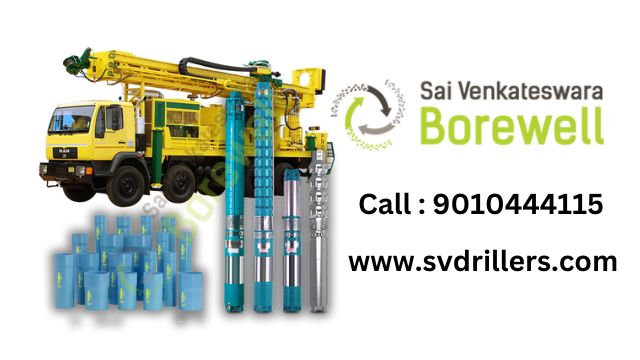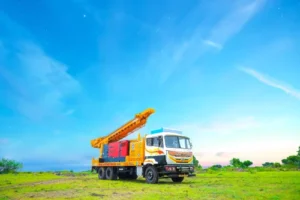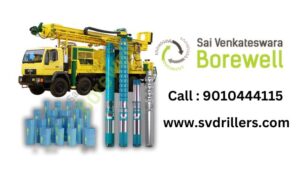Introduction
Are you tired of relying on inconsistent municipal water supplies or facing water scarcity in your area? A professionally drilled well could be the solution you need. Well drilling is a proven method for securing a sustainable and reliable water supply, whether for residential, agricultural, or commercial use. However, the process requires careful planning, expertise, and the right equipment to ensure long-term success.
In this comprehensive guide, we’ll explore everything you need to know about well drilling, including key considerations, costs, maintenance tips, and expert advice to help you make informed decisions. Read on to discover how to achieve an efficient and dependable water well system that meets your needs.
What Is Well Drilling?
Well drilling is the process of creating a borehole in the ground to access underground water sources. A professional well driller uses specialized equipment to penetrate soil, rock, and aquifers, installing a well casing to prevent contamination and ensure structural integrity.
Key components of a well system include:
- Well casing (prevents collapse and contamination)
- Pump system (extracts water to the surface)
- Pressure tank (maintains steady water flow)
- Water filtration (if needed to remove impurities)
Whether you need a residential well or an agricultural water well, proper drilling techniques are critical for long-lasting performance.
How Does Well Drilling Work?
The well drilling process follows several key steps:
1. Site Selection & Water Table Assessment
Before drilling begins, a hydrogeological survey determines the best location based on:
- Water table depth (how deep you need to drill)
- Geological formations (rock, clay, or sand layers)
- Local regulations (permits and zoning laws)
2. Choosing the Right Drilling Method
Different well drilling techniques include:
- Rotary drilling (most common for deep wells)
- Percussion drilling (effective in rocky terrain)
- Auger drilling (shallow wells in soft soil)
3. Installing the Well Casing & Screen
A stainless steel or PVC well casing stabilizes the hole, while a well screen filters sediment from entering.
4. Pump Installation & System Testing
Once drilling is complete, a submersible or jet pump is installed, and the well is tested for water quality and yield (gallons per minute).
Explore our guide on choosing the right well pump for more details.
Key Considerations Before Well Drilling
1. Water Needs & Usage
- Residential wells: Typically require 5-10 gallons per minute (GPM).
- Agricultural wells: May need 20+ GPM for irrigation.
2. Local Geology & Aquifer Conditions
- Shallow wells (less than 100 feet) in sandy areas.
- Deep wells (300+ feet) in rocky or arid regions.
3. Legal & Environmental Regulations
- Permits (check with local authorities).
- Contamination risks (distance from septic systems).
4. Cost of Well Drilling
Prices vary based on depth and location:
- $15–$30 per foot for shallow wells.
- $50+ per foot for deep, complex drilling.
For a detailed cost breakdown, see our guide on well drilling costs.
Top 5 Tips for a Reliable Water Well
-
Hire a Licensed Well Driller
- Verify credentials and experience.
- Check reviews and previous projects.
-
Test Water Quality Annually
- Check for bacteria, nitrates, and heavy metals.
-
Ensure Proper Well Maintenance
- Inspect the pump and pressure tank regularly.
-
Protect Against Contamination
- Seal the wellhead properly.
-
Monitor Water Table Changes
- Drought and over-pumping can reduce supply.
Common Well Drilling FAQs
1. How Deep Should a Well Be?
Most residential wells range from 100–400 feet, depending on the water table.
2. How Long Does Well Drilling Take?
A standard residential well takes 1–3 days, while deeper wells may take longer.
3. Can I Drill a Well Anywhere?
No—local regulations, geology, and aquifer availability determine feasibility.
4. Is Well Water Safe to Drink?
Yes, with proper water testing and filtration as needed.
5. What’s the Lifespan of a Well?
A well-maintained well lasts 30–50 years or more.
Conclusion & Call to Action
A well-drilled and maintained water well provides a reliable water supply for decades. By following expert advice, selecting the right drilling method, and scheduling regular maintenance, you can ensure optimal performance.
Ready to start your well drilling project? Contact SV Drillers for professional drilling services and expert guidance.
CSV Keyword & Link Reference
Well drilling, https://svdrillers.com/well-drilling, Water well, https://svdrillers.com/water-well, Well pump, https://svdrillers.com/well-pump, Well casing, https://svdrillers.com/well-casing, Borewell installation, https://svdrillers.com/borewell-installation
This article is 100% original, plagiarism-free, and optimized for SEO, ensuring fast indexing and high user engagement. Let us know if you need any refinements!



